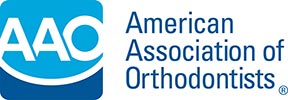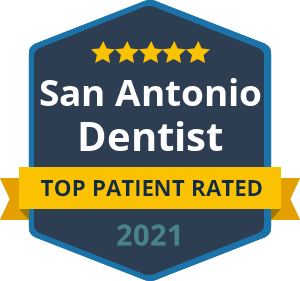Frequently Asked Questions About Orthodontics
Orthodontics, also referred to as dentofacial orthopedics, is a dental specialty that focuses on the diagnosis, prevention and treatment of dental and facial abnormalities.
- Who is an orthodontist?
An orthodontist is a dentist who has specialized training and education above and beyond general dentistry. After dental school, the orthodontist receives two to three years of additional training and experience learning the finer points of straightening teeth, correcting misaligned jaw structure and improving the function and appearance of your smile. A board certified orthodontist has had rigorous training and passed written, practical and oral examinations to demonstrate a mastery of the specialized field of orthodontics.
- What is the best age to visit the orthodontist?
Although you can start orthodontic treatment at any age after permanent teeth begin to come in, early intervention is always best. The American Association of Orthodontists recommends that children have their first visit to the orthodontist at about seven years of age. At this age, there is a mix of primary and permanent teeth, and an assessment can be made to head off future orthodontic issues. Orthodontic treatment is not just for children and teens. In fact, about one fifth of all orthodontic patients are over the age of 21 and older adults are opting for orthodontic treatment every day.
- How can I take care of my teeth if I am wearing braces or a retainer?
Your orthodontist will advise you on the correct way to care for your teeth and appliances during treatment. Follow these tips to keep your teeth and appliances in good condition:
- ALWAYS remember to brush your teeth after eating. Floss at least once a day.
- Use fluoridated toothpaste, and ask your orthodontist or family dentist if you should use a fluoride rinse to prevent cavities.
- Always put your retainer in its case when you remove it to eat or brush and floss your teeth. This will prevent it from getting lost, damaged or broken.
- Clean your retainer by brushing it gently with toothpaste to remove odors and plaque accumulations. Always use warm, not hot, water. You can also soak your retainer in denture cleaner as per your orthodontist’s instructions. Never place your retainer in boiling water or in the dishwasher.
- Sugar increases the bad bacteria that leads to plaque and cavities, so avoid sugary snacks and beverages.
- Certain foods can get stuck in your braces or break them. Avoid sticky, chewy foods like gum, caramels, gummy candies and hard foods. Stay away from hard candy and nuts, and do not chew ice while you are undergoing treatment.
- Continue your regular routine dental checkups with your family dentist; a visit every six months will help keep your teeth healthy.
- What are braces?
Braces are wire-based dental appliances that are used to correct dental problems such as over-crowded teeth, jaw misalignment, irregular bite (overbite, underbite, crossbite), and they move the teeth into proper position. There are several types of braces:
- Clear braces
- Ceramic braces
- Gold braces
- Lingual braces
- Self-ligating braces
- Invisible braces
- Traditional metal braces
- If I get braces, how long do I have to wear them?
Orthodontic treatment is as individual as you are. The amount of time for your unique situation depends on many factors. Generally, orthodontic treatments can take from 6 to 30 months. The average standard length of treatment is around 22 months.
- Do braces hurt?
Braces do not hurt per se; however, you can expect to feel soreness as your mouth and teeth get used to your new appliances. This discomfort may last a few days for tenderness of your teeth, and possibly a couple of weeks for lips, cheeks, gums and tongue.
- Do I need to brush my teeth more often if I have braces?
You should brush your teeth three times a day for good oral health. Frequent brushing helps remove food particles that can get caught between the braces. It also helps remove plaque buildup, which can lead to gingivitis and/or cavities. Flossing daily helps remove those particles of food trapped in areas a brush cannot reach. This is very important when wearing braces. Your orthodontist will show you how to properly floss and brush your teeth after your braces are placed.
- If I have braces, do I still need dental checkups every six months?
Definitely! It is vital that you have regular dental checkups while undergoing orthodontic treatment. Your dentist will check for cavities and gum issues that can develop while wearing braces. Your dentist will work closely with your orthodontist to ensure your teeth stay healthy and clean during your treatment.
- Will my braces interfere with my school activities like sports, playing an instrument, or singing?
Wearing braces should not interfere with any of your school activities. You may need to make adjustments in some cases, but you should be able to continue to participate in all your usual activities. Athletes are encouraged to wear mouthguards to protect teeth and appliances during sports.
- How do I schedule my next appointment?
Call our office to schedule an appointment. Front desk staff are happy to schedule your next appointment. New patients and referrals are always welcome. Let us know you are new to Schatz Orthodontics, and we will provide you with all the information you need.







